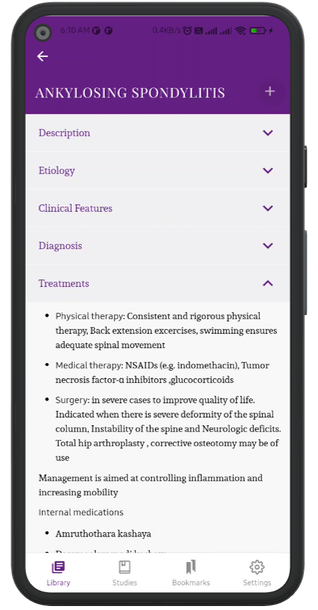DEPRESSION
Description
- Depression is a common mental disorder that presents with depressed mood, loss of interest and enjoyment and reduced energy leading to increased fatiguability and diminished activity. The most important feature is the sadness of mood or loss of interest and or pleasure in almost all activities present throughout the day. Based on the severity Depression can be Major, Moderate and Mild
- Major depressive disorder (MDD) is an episodic mood disorder primarily characterized by depressed mood and anhedonia lasting for at least 2 weeks. 5-6 diagnostic Clinical Features for depressive disorder should be present
There are various subtypes of MDD characterized by additional symptoms or occurrence in specific conditions, such as
- Atypical depression (additionally characterized by, e.g. weight gain and increased appetite)
- Psychotic depression (with additional psychotic features such as hallucinations and delusions) and
- Peripartum depression (which occurs during or shortly after pregnancy).
- In elderly patients, MDD can also manifest with memory loss and other symptoms seen in dementia, referred to as Pseudo Dementia.
Moderate depressive disorder
- Symptoms are present for 2 weeks for < 2 years.
- 4-5 diagnostic Clinical Features for depressive disorder (must include depressed mood or loss of interest)
Minor depressive disorder
- Symptoms are present for 2 weeks for < 2 years.
- 2–4 diagnostic Clinical Features for depressive disorder (must include depressed mood or loss of interest)
Types
- Depressed mood for most of the day, almost every day
- Anhedonia
- Sleep disturbance (insomnia or hypersomnia)
- Feelings of guilt and unworthiness
- Reduced concentration and attention
- Reduced self-esteem and self-confidence
- Bleak and pessimistic views of future
- Pervasive loss of interest and loss of reactivity to pleasurable stimuli
- Ideas hopelessness, worthlessness, helplessness and guilt
- Reduced psychomotor activity
- Subjective poor memory
- Fatigue
- Weight change due to appetite change
- Suicidal ideation
- Impaired functioning in important areas of life (e.g. work, school)
For a diagnosis of major depressive disorder, the following two criteria must also be present: the symptoms are not due to another psychiatric disorder and there is no history of a manic or hypomanic episode.
Differential diagnosis
Major depressive disorder
- Symptoms are present for at least 2 weeks. (must include depressed mood or loss of interest)
Persistent depressive disorder (dysthymia)
- Symptoms are present for ≥ 2 years.
- Depressed mood, Poor appetite or overeating
- Insomnia or hypersomnia
- Low energy or fatigue
- Low self-esteem
- Poor concentration or difficulty making decisions
- Feelings of hopelessness
Depression with seasonal pattern
- Typically occurs in a particular season
- Symptoms are the same as those in MDD
Minor depressive disorder
- Symptoms are present for 2 weeks for < 2 years.
- 2–4 diagnostic criteria for major depressive disorder (must include depressed mood or loss of interest)
Grief
- Identifiable loss or death of a loved one
- No functional impairment
- Symptoms typically occur in waves.
- Hallucinations of deceased loved one
- No suicidal ideation
Mood disorder due to another medical condition
- Depressive symptoms are explained by organic diseases, such as:
- Hormonal imbalances
- CNS disorders
- Cancer
Substance-induced depressive disorder
- Depressive symptoms in the setting of substance use, e.g., one of the following:
- Alcohol
- Hallucinogens
- Inhalants
- Opioids
- Amphetamines
- Cocaine
Disruptive mood dysregulation disorder (DMDD)
- Symptoms are present for ≥ 12 months.
- Severe temper outbursts (verbal or behavioral) ≥ 3 times/week
- Irritability or anger in between outbursts
- Diagnosis can only be established in children less than 18 years of age
Investigation
- Clinical diagnosis is as per the ICD11 or DSM 5 criteria
- Symptoms should last minimum for the duration of two weeks
- Hamilton Depression Rating Scale (HAM-D) is used to rate the severity
Screening:
- Assessment of suicide risk
Laboratory evaluation:
- To rule out organic disease
- Thyroid function tests: (to rule out hypothyroidism)
- Urine toxicology: screen for drug use causing depressive symptoms, ( benzodiazepine withdrawal, amphetamine use, and cocaine )
- Neuroimaging: to evaluate for structural brain disease
Treatments
- Psychotherapy
- Cognitive-behavioural therapy (CBT)
- Interpersonal therapy
- Psychodynamic psychotherapy
- Family and couples therapy
- Lifestyle changes (aerobic exercise, nutrition, sleep hygiene, social support, stress reduction)
- Mild to moderate depression can be treated with the following medications.
Internal Medicines:
- Aswagandha choorna + Sankhupushpi Choorna + Kushta Choorna in equal quantity
- Saraswatha choorna for associated cognitive complaints
- Somalatha churna for associated sleep disturbances
- Panchagavya ghrita,Mahatpanchagavya ghrita and Brahmi ghrita - Samana snehapana
- Drakshadi kashaya
Procedures
- Snehapana and Vamana or Teeksha virechana
- Yogavasthi - Doshahara kashaya vasthi and Snehavasthi is done with Panchagavya ghrita
- Vilwadi teekshna Nasya and Anjana
- Dhoopana and Dhoomapana
- Siropichu - Sankhupushpyadi taila
- Gudardraka prayoga after shodhana procedures
Department
Manasika Roga

